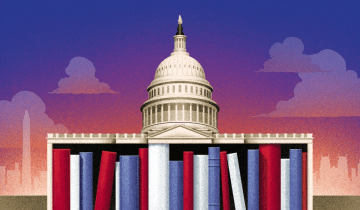A recent poll by Policy Analysis for California Education (PACE) and USC Rossier confirmed what many educators, parents and students likely already know: The public has become increasingly polarized about issues in education.
The poll found that the majority of voters in California approved of the work of schools and teachers during the COVID-19 pandemic. However, the views of voters on many other issues were divided along political party lines.
These findings mirror the widening gap between Democrats and Republicans on issues like racial justice, the economy and climate change.
Although the number of Americans who think education is important has dipped in recent years, a majority still believe it is valuable. So what factors are dividing the country?
Frustration over school closures
Throughout the pandemic, schools were forced to update closure policies based on changing infection rates and revised guidance from state and national leaders.
This, combined with the challenges of remote learning, understandably caused frustration and confusion among many families. The extent to which those families blame schools, however, depends on party affiliation.
According to the PACE poll:
Democrats showed substantially more support for California public schools and teachers than did Republicans, 42 percent of whom gave California public schools a D or F grade. Approval of how well local officials handled school reopening and pandemic schooling also fell along partisan lines, with Democrats more supportive of the work of government officials than Republicans.
Misinformation
The controversy over critical race theory highlights the persuasive power of misinformation.
The academic concept isn’t being taught in schools, but lawmakers in many states have proposed legislation banning topics like white privilege under the umbrella term, “critical race theory.”
Additionally, some parents, with the backing of conservative activist groups and media outlets, have confronted local school boards across the country. In some cases, this has led to recall efforts for all members of a board.
Lack of trust in higher education
College graduates often experience economic advantages and a greater degree of career preparation over those without a college degree. And prior to the pandemic, college enrollment has steadily risen over time.
However, Americans’ have become increasingly divided in their feelings about higher education. Both Democrats and Republicans tend to agree that college is too expensive. But the latter group cites ideological factors such as professors bringing their political views into the classroom as troubling.
Oversimplification of complex issues
Ideology may be one of the root causes of polarization in education. It can divide educators from the public on issues such as equity and create rifts within the education community itself (see the debate over charter schools).
Educational leaders would do well to avoid blind commitment to ideology, suggested USC Rossier Dean Pedro Noguera in the online event The Search for Common Ground. Focusing on solutions is a more effective way of navigating a complex challenge with stakeholders who have different perspectives.




